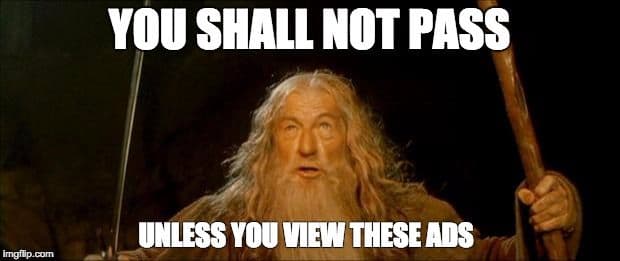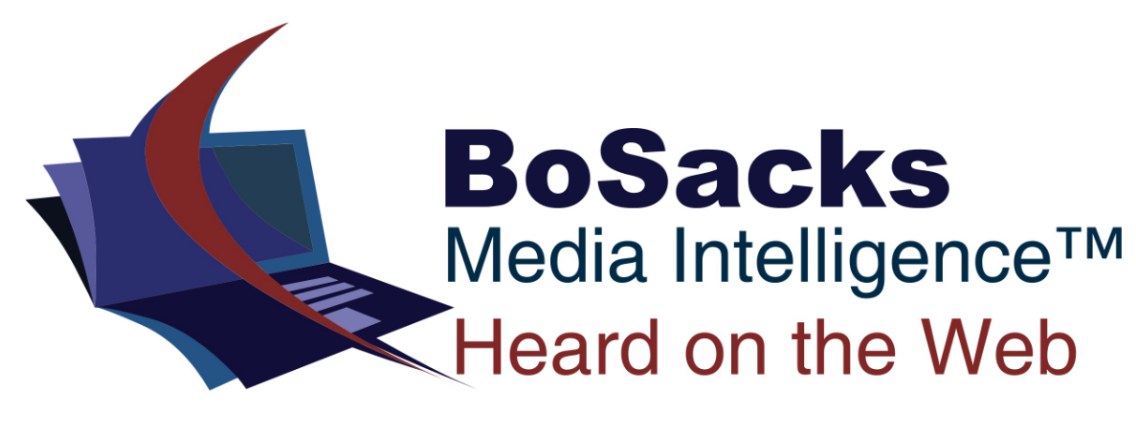BoSacks Speaks Out: Do people hate advertising? No, they hate bad advertising.
By BoSacks
Mon, Aug 3, 2020

BoSacks Speaks Out: There is a brief comment in the article How to shift towards a paywall that I sent out last night. It is an oft repeated expression throughout the industry that “We have to face it: people hate ads.” I beg to differ on that point. What people hate are bad ads and bad advertising campaigns. People hate intrusive ads that follow you everywhere tracking advertising.
There are plenty of ads people like and enjoy.
Here are just a few of my favorites in no particular order:
Nike: Just Do It.
Absolut Vodka: The Absolut Bottle.
Anheuser-Busch: Whassup
Apple – “1984”
Wendy’s – “Where’s the Beef?”
Coca-Cola – “Meet Joe Greene”
Old Spice – “The Man Your Man Could Smell Like”
Always – “Like a Girl”
Those were great ads, and I doubt they were hated by too many consumers.
Perhaps it is counting on an algorithm for success rather than creativity that is at the heart of advertising’s problems today. Could it be that corporate consumer surveillance has replaced innovation and imagination? I think so.
It seems little has changed and that it is obviously worse since 2016 when I wrote this still relevant article:
We are now deep into a relatively new and unresolved media phenomenon. I think it's fair to call it the "21st Century Ad Wars." There are four armies or protagonists in this war. They are the publisher, the advertiser, the ad blockers and, of course, "the mark." Oh no, I mean the coveted consumer.
The two most important factions in the battle for revenue romance are the advertisers who have the product for sale and the consumer who has the money and might want the product. The publisher is there to act as a conduit between the two primary flirters. The ad blockers on the scene with the proposed not-always-honest intention to protect the consumer. As Shakespeare said prophetically about the digital process, "what a tangled web we weave."
All was well in hand in the analog print days of yore until the web arrived and sales and advertising in printed products went south. So the Publishers, eager to reclaim lost revenue introduced new paths of monetary rewards and created along the way ever increasing intrusive and self-destructive projects that eventually broke the bond of trust with the reading public. That trust on the web is now long gone for most. Did all advertisers and publishers take the low road? Absolutely not. But enough web practitioners did to completely dirty the waters for all. Swimming with the sharks isn't always a pleasant experience, and you quickly learn not to trust anything swimming nearby.
The advertisers and the publishers abused their privileged position and actually started to think of the consumer as a mark, there to be taken advantage of in every conceivable way possible. Unwanted tracking, bloated advertising destroying the digital experience, and a general overarching abuse of the developing channels of communication. You might as well add to that mix the volatile hidden inclusion of downloading malware willingly or not into the public and consumer domain.
I see this as an unwinnable technologic trench war with one and only one path to digital peace in our time. The solution is for content to be worth paying for. Here is my question. Is your content worth the consumer paying for its full and fair value? If not, why not? Did I hear you say they won't pay enough for it and that you have to subsidize it with advertising? Yes, that was the path of the past and in an analog world was accepted by all - the publisher, the advertiser and the mark. That is one of the reasons that print is still the best ROI. The rules are fully understood by all, and the ads aren't bloated and ready explode upon command.
Here is the thing - and this comes from a long-time-and-still-practicing digital futurist who still sees digital as the predominant way people are and will be reading - digital is succeeding in grabbing most of our attention and eventually digital advertising will probably succeed, too. But that success won't take away from the experience of reading print.
The haptic or touch experience between print and digital is mainly a different feel, a different sensation and, perhaps above all else, a completely different expectation. Print doesn't offer distractions other than the words and thinking on the page, while the digital experience intends to and does offer distractions galore. I think a case can be made that reading on the web requires a modern kind of discipline to actually finish the article you started to read, whereas in print there is no place else to go but finish what you picked up to read. I'm not saying that just because we read a printed product we always finish it. In many cases we don't. That is also demonstrably true for the digital experience, only more so.
That is where I concluded my 2016 article, which brings me back to my question. Is the problem counting on an algorithm for success rather than creativity at the heart of the problem today? Could it be that corporate consumer surveillance has replaced innovation and imagination and has thus brought on the concept that people hate advertising? Your thoughts would be greatly appreciated.
